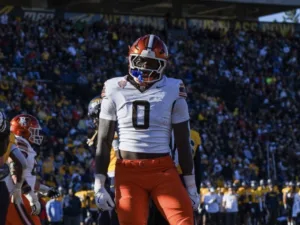
Tight Ends: Can College Yardage Help Predict NFL Success?
When evaluating talent for the NFL, analysts often look at a player’s college performance to predict their professional success. In our 64-part
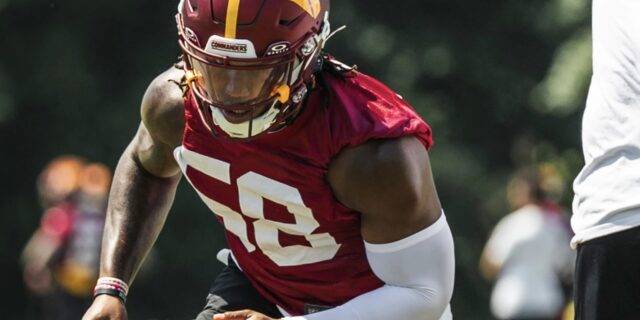
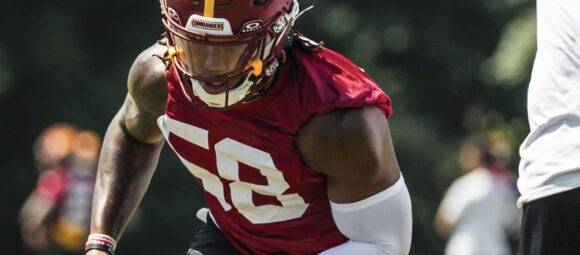
In Part 36 of our “Does It Matter?” series, we looked to solve the question of whether a Linebacker’s Relative Athletic Score (RAS) can predict their success in the NFL. After running the numbers, we found an optimal range and tested our data for statistical significance Here are all of our findings:
Relative Athletic Score (RAS) is a metric used to evaluate the athleticism of NFL prospects based on their performances in Combine and Pro Day drills. Developed by Kent Lee Platte in 2013, RAS takes various physical attributes such as speed, agility, explosiveness, and size to normalize them on a scale from 0 to 10. The results are then color-coded to provide a quick visual comparison of a player’s athletic traits relative to other players of the same position. This system helps teams and analysts quickly assess the athletic potential of prospects. Us at BrainyBallers have used RAS religiously in evaluating talents.
Our analysis focused on the top 50 fantasy football finishers since 2003. We concentrated particularly on two different groups within that top 50: the top 10 finishers and the “bottom 10,” defined as those finishing from 41st to 50th each season.
Why the top 50? Choosing the top 50 allowed us to maintain a “happy medium.” Including finishers beyond this threshold would risk skewing the data with players who are fringe roster players and naturally won’t score top 10. Conversely, comparing the top 10 to a number which includes the 11th place finisher, or a number close to that, does not satisfy our itch for finding trends.
To begin, we created our averages charts for various finisher groups: Top 5, Top 10, 11th-30th, and 31st-50th place finishers. Contrary to some expectations, this averages chart didn’t reveal a clear trend linking RAS scores to top-tier performances. Interestingly, 13 out of 21 seasons (61.9%), the Top 5 finishers often had the same, or even lower, RAS compared to finishers from 31st-50th place. This trend was the beginning of us doubting RAS as a predictor for Fantasy Football success.
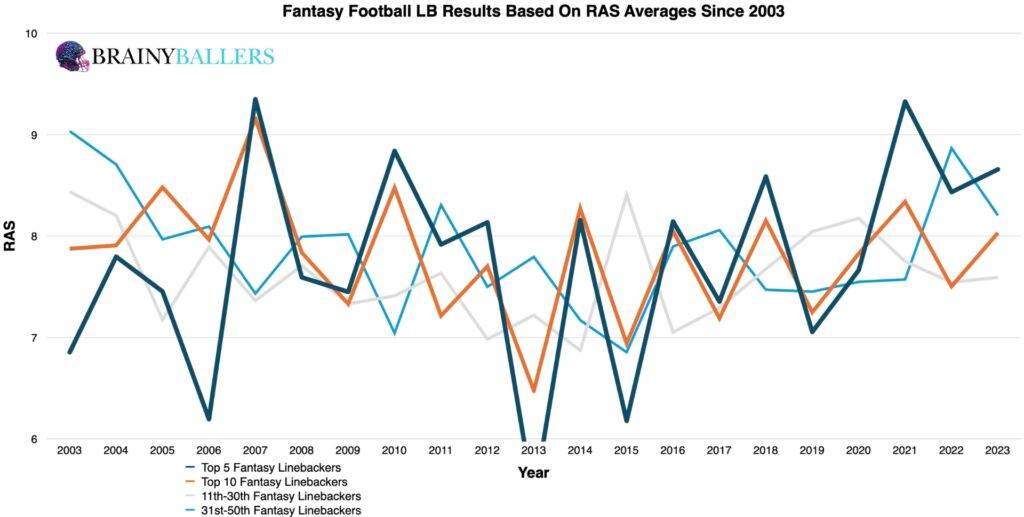
We examined the top 10 finishers since 2003 and segmented their RAS scores into 0.1 RAS increments. This analysis revealed a slightly different story than the averages chart – a tendency for higher RAS scores to cluster more densely within the top 10 chart. This appears to be due to more top 10 finishers finishing under 5.0RAS than the bottom 10, which is not displayed on this chart.
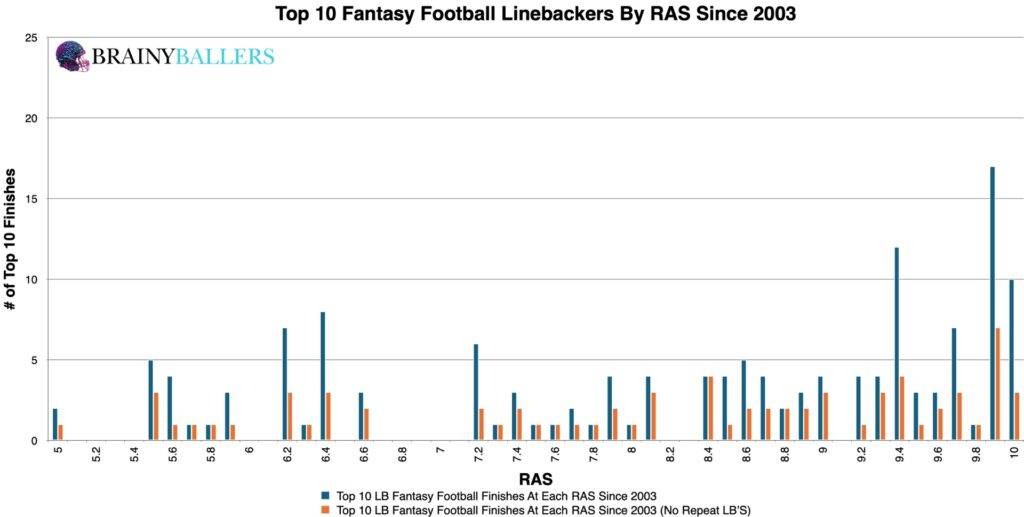
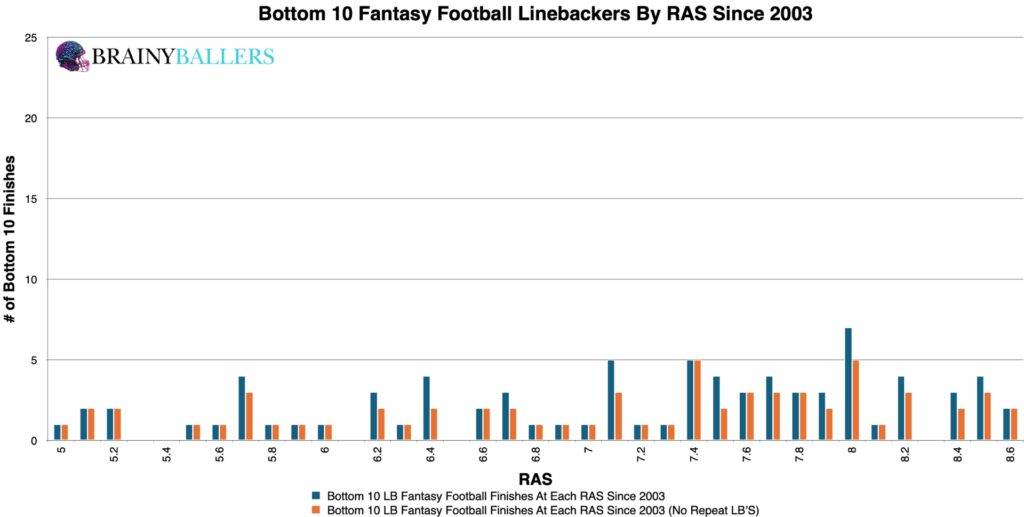
To find an applicable range or threshold, we developed a differences chart. This chart compared each RAS, and added the next 0.5 RAS increment, while subtracting the bottom 10 results from the top 10. The chart’s desired outcome is a negative number for unique differences (Orange) and a positive number for non-unique differences (Blue). This would indicate the desired consistent top level performances we are hoping for. From this, it appears as though 8.9 RAS and higher is a promising threshold. We next will attempt to verify this as the top producing range, or find another.
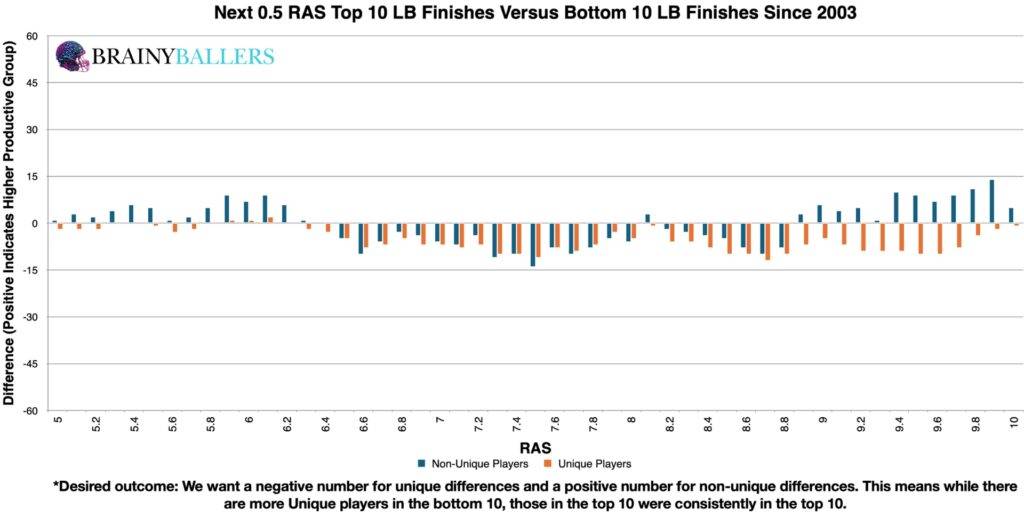
To verify this is the highest producing optimal range, we made adjustments to this range within our spreadsheet to attempt to find a higher producing one. This effort revealed that a RAS score of 9.2 and above produced a 9.8% increased presence in the top 10 leaderboards when compared to the bottom 10. This range will be our optimal range for LB RAS and will be the subject of this research going forward.
Due to these findings, RAS could play a factor in our Star-Predictor Score (SPS) model. Since 2.6 RAS seconds is the lowest seen since 2003 in the top 10, this will be the critical value for the SPS. The Star-Predictor Score (SPS) is a scouting tool designed to maximize investment potential and reduce risks when drafting rookies in Fantasy Football. It is proven to have a higher accuracy than draft capital alone to predict fantasy success. The SPS includes 13 to 17 metrics, with the exact number varying by the player’s position. All these metrics are pre-NFL, and some are invented by us, providing a complete analysis of a player’s analytical profiles. The SPS gained widespread notoriety for its high accuracy, having made it on Barstool and The Pat McAfee Show. The SPS can be found here.

Standard statistical methods yielded a Pearson value of 0.016, demonstrating no significant correlation between a linebacker’s RAS and fantasy production. We are hoping for a minimum of 0.1, or an inverse correlation maximum of -0.1 when we study world-class athletes as we are. For reference to something that everyone acknowledges matters in prospect scouting, and to show the accompanying Pearson value, QB draft capital prevailed a -0.219 Pearson value.
By applying our optimal range to all athletes across the last two decades, we were able to see whether this is a growing or dying trend. Our analysis revealed an increasing significance of this optimal range in the most recent decade, showing it may possibly be growing in importance.
| 2004-2013 | |||
| Top 10 | 11 through 40 | Bottom 10 | |
| All count | 71 | 215 | 67 |
| All 9.2 and above | 24 | 55 | 19 |
| % (Optimal Range/all) | 33.8% | 25.6% | 28.4% |
| 2014-2023 | |||
| Top 10 | 11 through 40 | Bottom 10 | |
| All count | 89 | 278 | 95 |
| All 9.2 and above | 35 | 83 | 26 |
| % (Optimal Range/all) | 39.3% | 29.9% | 27.4% |
What 3 metrics matter the most when scouting a rookie Quarterback? What threshold should Quarterbacks achieve within those metrics to be considered an elite prospect? How much should you value those stats above all other stats? Couldn't answer those questions? Rest easy, we have it handled for you. That's what this chart answers. Sort by importance and/or filter by position. Unlock by signing up with the links provided. $9.99/Year or $24.99 Lifetime access. Cancel anytime.
From this study, we’ve identified an optimal RAS range that occurred more frequently among the top 10 performers compared to the bottom 10. Further, we found 10 rookie Linebackers had a RAS within this optimal RAS range. Although, the Pearson value came back as extremely underwhelming. Therefore, these results can be taken with a grain of salt, and we are recommending to not use RAS alone for Linebacker scouting. If you still believe in it, the RAS optimal range is 9.2 and above RAS.
Our series has always sought to push the boundaries of sports analytics. This latest installment reaffirms our commitment to uncovering the hidden dynamics that define the game. Every Saturday, we’ll dive into intriguing questions, bust myths, and settle debates with thorough analysis. We welcome your input. Therefore, please leave comments or reach out with topics you’re eager to see dissected. All of our research can be found on our Analytics Page. Up next on our agenda for Part 37 of “Does It Matter?” is an examination of Wide Receiver’s Best College Season Yardage: Does it matter? If so, what’s the yardage threshold necessary for NFL success? Mark your calendars; every Saturday we shed light on the topics that matter to you. All it takes is a quick question being asked and we will go to work for you!


BrainyBallers Buy-Hold-Sell Chart (All Players)
Get Your Products 100% Refunded By Predicting The Next SuperBowl Winner!

When evaluating talent for the NFL, analysts often look at a player’s college performance to predict their professional success. In our 64-part
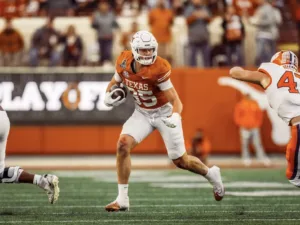
In our 63-part analytical series, “Does It Matter?”, we next wanted to look into the intriguing question of whether a Tight End’s
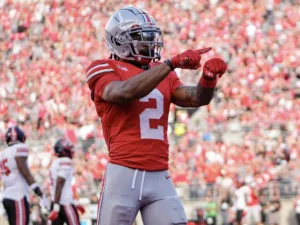
For our 61 part “Does It Matter?” series, we looked into whether a Wide Receiver’s College Yards After Catch per Reception (YAC/Rec)
© 2023 BrainyBallers | All Rights Reserved